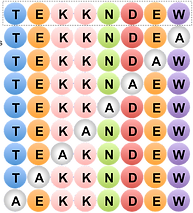
Teaching
CENG 2110 - Material and Energy Balances

Course Objectives
This course is designed to give students a quantitative understanding of the mechanism of mass and heat transfer in physical situations of importance to chemists and chemical engineers. This is accomplished by the analysis of experiments, mathematical modeling, and comparison of model behavior with experimental results. The verified models are used to illustrate:
-
The design and operation of process equipment at the lab, pilot and commercial scale
-
The analogies between heat, mass and momentum transport
-
The analysis, prediction of behavior, and control of living organisms and the natural environment
Specific goals for the course
Students will be able to perform...
-
Basic engineering calculations
-
Material and energy balance calculations
-
Basic applied physical chemistry
-
Computation.
-
Teamwork.

CENG 3390 - Transport Phenomenon II - Heat and Mass
Course Objectives
This course is designed to give students a quantitative understanding of the mechanism of mass and heat transfer in physical situations of importance to chemists and chemical engineers. This is accomplished by the analysis of experiments, mathematical modeling, and comparison of model behavior with experimental results. The verified models are used to illustrate:
• The design and operation of process equipment at the lab, pilot and commercial scale
• The analogies between heat, mass and momentum transport
Specific goals for the course
Students will be able to...
• perform phenomenological analyses of heat and mass transport equipment
• relate macroscopic transport coefficients to microscopic phenomena based on Fourier’s and Fick’s laws
• design experiments to estimate heat and mass transport coefficients for the design of process equipment.

CENG 6870 - Biomolecular & Cellular Engineering
Course Description:
Introduction to genetic and environmental manipulation of cells for biofuel, biochemical, and drug discovery and production. Topics include biomolecular interactions (protein energetics, binding equilibria, association kinetics), protein aggregation, cloning and gene expression in different host systems, posttranslational processing, protein engineering, metabolic engineering, and synthetic biology. Will include case studies – in class discussions of primary literature.
Course Goals:
Obtain a working knowledge of small molecule and protein interactions at the cellular and molecular level and the modern biological, genetic, and engineering tools to change these interactions.
Course Offered: Spring 2017, 2018
CENG 6781 - Special Topics Life Sciences

Course Description:
Introduction and advanced discussion of genetic engineering techniques and methods and their wide-ranging applications in bacterial and mammalian systems. Topics include traditional cloning and gene expression, metabolic engineering, and synthetic biology with a specific emphasis on DNA recombineering and CRISPR/Cas methods and techniques. The course will comprise lectures and literature-based presentations and discussions.
Course Goals:
Obtain a working knowledge state-of-the-art methods in genetic engineering living systems at the cellular and molecular level and the applications of such methods in biotechnology.
Course Offered: Spring 2020
